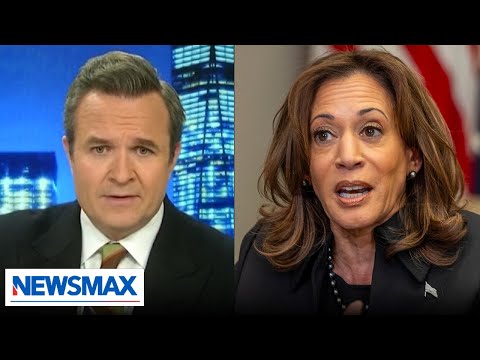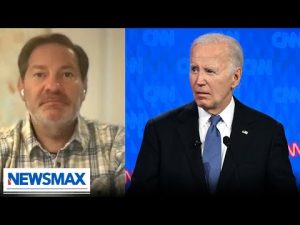In the tumultuous world of American politics, few entities elicit as much passion and fervor as the media. But for many conservative Americans, particularly those in the MAGA circles, there seems to be a universal sentiment that the media deserves a hefty dose of disdain. With the fervor of a crowd at a football game, they argue that the media’s actions over the past few years have not only misled the public but have also fostered an environment of distrust. They view this as a rallying cry for accountability, especially as new revelations continue to come to light regarding the 2020 election and the interviews that colored it.
One such moment was the October 6, 2020, interview on CBS’s “60 Minutes,” where Kamala Harris and Minnesota Governor Tim Walz were given a platform. The criticism from conservative circles centers around what they perceive as a blatant attempt by mainstream media to protect Joe Biden’s candidacy at all costs. They argue that this interview, which ostensibly should have showcased Harris’s perspectives, actually served to sanitize her public image. In the eyes of these critics, Harris failed to resonate with the American public when it mattered the most, further underscoring the notion that the media played a significant role in this electoral charade. Ultimately, conservative commentators believe that Harris’s lackluster performance should have been a knockout punch for her candidacy, leading to a thorough investigation by the FCC regarding potential election interference.
Speaking further on the matter, critics highlight how Harris’s responses during that interview were anything but illuminating. When pressed about complex geopolitical situations, like the conflict between Israel and Hamas, her rhetoric seemed vague and unconvincing. Rather than asserting authoritative positions, her remarks were perceived as lacking substance, creating an impression that she was ill-prepared for one of the most pressing issues of the time. The subsequent sanitization of her interview by CBS only served to fuel the fire of distrust among conservative viewers, who felt they were being spoon-fed a narrative crafted to favor Democratic candidates.
The parallels drawn between Harris’s interview and historical moments in politics only steepened the intrigue. Mentioning Ted Kennedy’s rocky outing during a “60 Minutes” interview in 1979, conservatives argue that Kennedy’s fumbling seemed to mark a political death knell. However, they assert that Harris escaped similar scrutiny due to the media’s bias. To them, Kennedy’s floundering was seen as disqualifying, yet Harris received an undeserved protective barrier, revealing the media’s double standards.
As conversations continue about where the lines are drawn in political narratives, there’s a pervasive frustration among conservatives that the media indeed shapes public perception much more than it should. Following suit is the unfolding debate around gender identity in sports, with recent executive orders from the Trump administration aimed at protecting women’s sports from unfair competition. For conservative advocates, this move is heralded as a long-overdue acknowledgment of common sense, preventing biological men from competing against women in sports. In their eyes, this reinforces a commitment to ensure fair competition and safety, over what they perceive as ideological overreach.
In a culture where political ideologies clash at every turn, conservative commentators are adamant about promoting a message of accountability, especially in the realm of media and sports. Whether it’s lifting the veil on perceived media malfeasance or advocating for women’s rights in athletics, they are rallying for a course correction. The stakes feel high, and for them, it’s not just about winning an argument but about restoring a sense of truth and fairness in public discourse. As they continue to navigate this multifaceted landscape, one thing remains clear: the fight for what they believe is a just cause is far from over.



